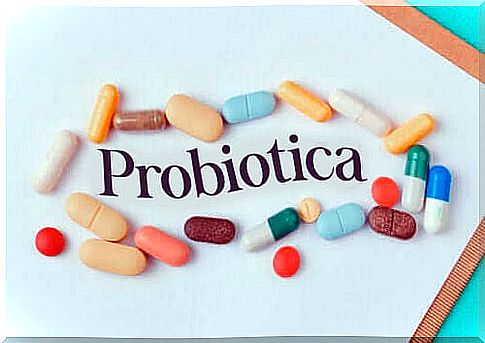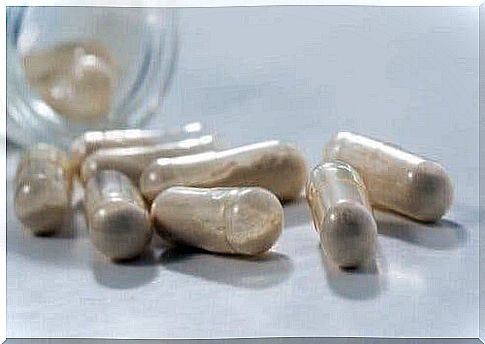Probiotic Supplements: When Do You Use Them?

Probiotic supplements are live microorganisms that, when administered in adequate amounts, have several health benefits. In general, anyone can use these supplements, but certain populations benefit the most. Read on to find out more!
Everything you need to know about probiotic supplements
As we mentioned above, probiotics are bacteria that provide health benefits. You can find them in a variety of foods, such as:
- Yogurt
- Kefir
- Sour milk (typical of Mexican cuisine)
- Sauerkraut, kimchi (of Korean origin)
- pickles
- Kombucha tea
- tempeh
- Dietary Supplements
While you can find them in some foods because of the way they’re made, these bacteria can’t always reach the colon. They don’t always survive the long journey through the gut, as some studies claim.
In fact, we would also need to ingest probiotic foods very often and in quite a large amount to be beneficial. Therefore, probiotic supplements contained in good capsules can survive in the digestive system and provide additional benefits.
When should you take probiotic supplements?

Currently, experts recognize that probiotics not only serve to improve the functional status and symptoms of someone with a disease, but that they could also help people stay healthy or prevent disease.
However, some groups of people benefit twice. For example, people who have just been treated with antibiotics can really benefit from probiotics.
Antibiotics kill both bad and good pathogens (microbiota, vaginal flora and other mucous membranes, among others) and probiotics help replace the good ones. Therefore, after taking antibiotics, it is a good idea to take probiotics for at least a month.
Furthermore, the greatest evidence of the efficacy of probiotics has been attributed to the treatment of acute infectious diarrhoea, especially in children. But other groups can also benefit from this, such as those with gut dysbiosis. This usually occurs in people who suffer from:
- obesity
- Type 1 and 2 diabetes
- metabolic syndrome
- Systemic lupus erythematosus (SLE)
- Rheumatoid arthritis
- Bacterial overgrowth syndrome
- Inflammatory Bowel Disease
- Irritable bowel syndrome
- celiac disease
Probiotic supplements are also good for the elderly. This is because as we age, microbial diversity decreases, reducing the presence of beneficial microorganisms.
Experts are also studying its use in other diseases, such as:
- Asthma
- Atopic Dermatitis
- Neurological disorders
- Depression
- Fear
- Cancer
- oral health
As we mentioned above, the consumption of probiotics is considered safe for most people. However, they can cause infections in immunocompromised people. These people should not take probiotics as a supplement without a prescription.
The Best Probiotic Supplements

In order for the probiotic varieties administered orally to exert their beneficial effects, they must withstand the environmental conditions of the digestive tract and the microbicidal action of saliva, stomach acid, bile and pancreatic secretions, among others.
We should also note that the composition of different secretions, gastric emptying time or intestinal motility may vary depending on the age and health of the person.
It is therefore important to choose the strains of microorganisms depending on your health condition. The more different species there are, the better. Therefore, probiotics containing different strains are the best to use.
A good probiotic supplement should contain at least 1 billion CFU (colony-forming units). Probiotics with fewer colony-forming units are much less effective.
How do you take them?
Never use probiotics with highly acidic foods, such as citrus fruits, tomatoes, or vinegar, or with hot drinks (tea, coffee, infusions, or soups), as they interfere with their effectiveness.
The best way to take them is on an empty stomach with lukewarm water. At that time, both the pH of the stomach and the low hydrochloric acid content are factors that promote the survival of the bacteria. For the same reason, it is advisable to wait 10 to 15 minutes before eating. If you are taking antibiotics, take the supplement at least three hours later.
Finally, if you want to take probiotics, take antibiotics or have a disease that you could improve with taking them, consult a specialist to find out which supplement is best for you.









